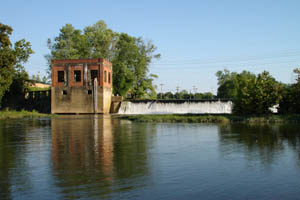Shelbyville, Tennessee
>Home
>Community Introduction
>Field Reports
>Next
History
"The
city of Shelbyville, Tennessee, was established by an act of the Tennessee
Legislature in 1809. The southern half of Bedford County, as it then existed,
was taken away from Bedford to form Lincoln and Moore
Counties. The Bedford County seat had been established at or near the
Mulberry Community, south of Lynchburg; hence, the remaining territory
forming Bedford County was without a county seat. The legislature appointed
seven commissioners to set a place on the Duck River within two miles
of the center of the county, on a line east and west and as much nearer
the actual east and west center as possible. The act directed the Commissioners
to 'purchase one hundred acres of land...which they may fix...and...lay
off...into a town, to be known by the name of Shelbyville, reserving near
the center thereof a public square of two acres, on which the courthouse
and stocks shall be built, likewise reserving any other lot...for the
purpose of having a jail built hereon, for the use of the County of Bedford.'
Mr. Clement Cannon, a member of the community, donated 100 acres of land
for the location. The site was plotted into lots as directed, and soon
merchants came and established new businesses.
"The
best authorities available show that Shelbyville was named for a distinguished
Indian fighter Colonel Issac Shelby. He later became prominent in state
and national political affairs during the early days of both Tennessee
and Kentucky.
"Bedford County was robbed of more territory in 1836 when five civil
districts (12 through 17) were transferred to Marshall County (this taking
the birth-place of Confederate General Nathan Bedford Forrest out of Bedford
County and moving it to Chapel Hill). At the same time, a considerable
slice was removed to form Coffee County.
"Once the state's largest county in area and population, Bedford was
thus reduced to its present size."
(Text used by permission of the Shelbyville Bedford County Chamber of Commerce. Visit http://www.shelbyvilletn.com for more information.)
